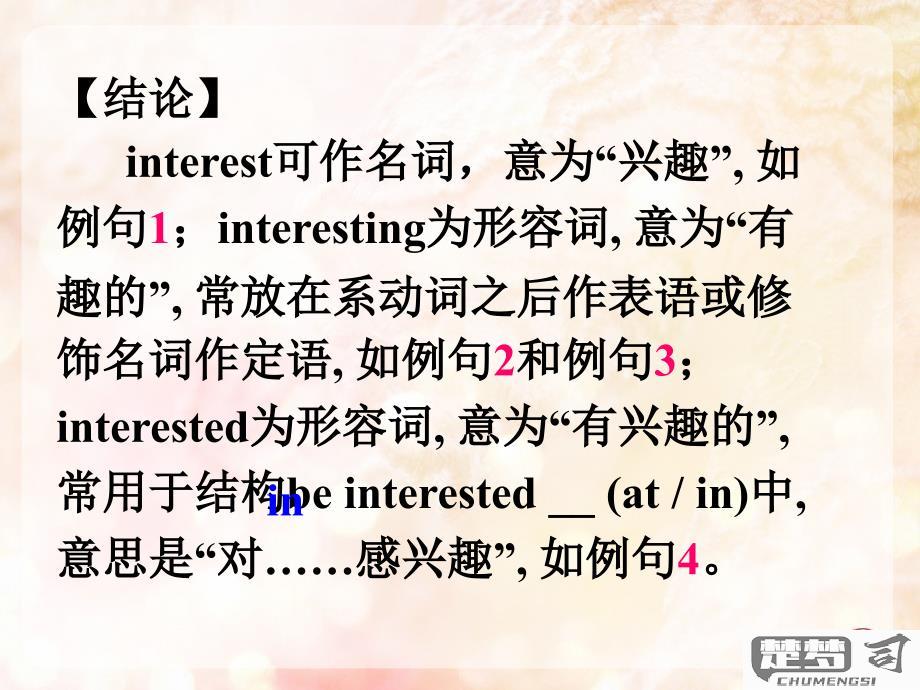“Interested”是一个形容词,表示某人对某事物感兴趣或好奇。它用于描述对某种活动、主题或事物的关注和喜爱。在句中,“interested”常与介词“in”连用,形成“interested in”的短语。:“I am interested in learning new languages.”(我对学习新语言感兴趣。)在这个句子中,主语“I”表达了对“learning new languages”的兴趣。
一、interested的基本用法
“Interested”作为形容词,用来表达对某个主题或活动的好奇心和积极态度。它可以用在各种场合,学习、工作或娱乐等。使用“interested in”结构时,后面可以跟名词、动名词或从句。:“She is interested in photography.”(她对摄影感兴趣。)这里“photography”是名词,而“interested”则描述了她的兴趣。

二、interested的不同形式
除了作为形容词,“interest”还可以作为名词和动词。在名词形式中,它指的是某人或某事物引起的吸引力或关注。:“He has a keen interest in science.”(他对科学有浓厚的兴趣。)而作为动词时,“interest”表示引起某人的或好奇心,:“The new discovery interested many scientists.”(这一新发现引起了许多科学家的兴趣。)这种不同形式的运用,让“interest”在句中灵活多变。
三、使用interested的事项
在使用“interested”时,需要与相应的介词搭配。“interested in”是最常用的搭配。还有“be interested to do something”这种结构,用于表达做某事的兴趣,如:“I am interested to learn more about this topic.”(我对了解这个话题更感兴趣。)在口语和书面语中,确保搭配的正确性,可以使表达更加准确清晰。
相关问答FAQs
Q1: “interested”和“interesting”有什么区别?
A1: “Interested”是形容词,表示某人对某事物感兴趣;而“interesting”则形容某事物本身具有吸引力或引起兴趣。“I am interested in this book.”(我对这本书感兴趣。)与“This book is interesting.”(这本书很有趣。)表达的意思截然不同。
Q2: “interested in”后面可以接什么?
A2: “interested in”后面可以接名词、动名词或从句。:“He is interested in music.”(他对音乐感兴趣。)或“He is interested in learning new skills.”(他对学习新技能感兴趣。)
Q3: 如何用“interested”进行更复杂的表达?
A3: 可以通过合成句或者使用形容词短语来丰富表达。:“I am really interested in how technology can improve our daily lives.”(我对技术如何改善我们的日常生活非常感兴趣。)这种复合句的使用可以更详细地表达兴趣的对象和理由。
